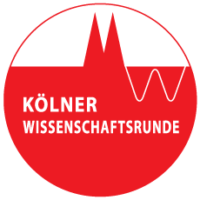401305_web_R_B_by_Sebastian Bernhard_pixelio.de
© Sebastian Bernhard_pixelio.de
Inform yourself early, and study smart
What should one pay attention to when beginning a course of study? Helpful pointers and general orientation.
Prep Courses and Info Sessions
In many subjects, studies have already begun before the official start of the term. Imme¬diately upon enrolling, you should set out on a hunt for first-semester introductory and info sessions, as well as for the obligatory preparatory courses. You will find info on dates and deadlines through the academic counseling services, departments, departmental student representative committees.
Planning your program of studies
Lecture schedules are an important resource for planning a program of studies. Universities in Cologne each separately publish their own comprehensive lecture schedules. These schedules and course guides include all the courses, lectures, and seminars offered in the upcoming semester, and can be picked up in many bookshops.
Frequently, annotated lecture guides for separate subject areas have been prepared by student representative organizations. The descriptions provided in these guides help a student determine what is important. Most often, these guides can be found in the offices of the student representative committee of the department, or at the information desk of the respective departmental library. However, many can also be found on institute and departmental websites.
Regulations governing university courses and exams
The regulations governing university courses and exams regulate the content and structure of a university program of study, and its completion. They can be obtained in the competent registrar’s office. The regulations firmly establish which obligatory subjects or lectures must be attended before someone can sit for an exam.
General studies
Any and every student attending a university is given the opportunity to participate in all university lectures and seminars offered by any department. Exeptions to this rule are “colloquia”, scholarly gatherings that have been planned for a specific and restricted circle of people. Students enrolled in other universities are also welcome to drop in on university lectures, presentations, and seminars.
Re-registration
Each new semester, all students must re-register themselves, i.e. they must confirm that they intend to continue studying. As a rule, re-registration occurs automatically: You pay the tuition fee for the semester by the prescribed deadline and then a new student identification card is sent to you along with proof of enrollment and a student ticket. Whoever misses the deadline must pay a late fee or they will have their name taken off the university register.
Time off
You can take time off from your studies, provided you have serious grounds. These include: completing your basic military service or alternative community service, illness (only against presentation of a doctor’s certificate), collaboration on a research project, or study abroad. Info on this topic is available in the competent registrar’s office (be careful to note application deadlines). Time off in the first semester, or retroactively is out of the question.
Academic rank
All students are entitled to append the the abbreviated “stud.” to their names. A person studying medicine, for example, may append “stud. Med.” to their names. Once they have reached the time when they can take final exams, “stud.” is changed for that of “cand.”. Following exams, you will have earned the right to a title according to the regulations governing university courses and degree progam, i.e. a degree in biology (Diplom-Biologie) becomes “Dipl.” or a Magister Artium becomes M.A.. Should you complete a doctoral program, you can carry the title of Doctor (Dr.). Finally, after habilitation, you may be promoted to the status of full professor (a qualification based on a postdoctoral thesis entitling someone to hold senior position in a university department).
Because of the introduction of Bachelor’s and Master’s degree programs, which are intended to internationalize the degrees awarded, the diploma-based course of study is slowly being replaced. The Bachelor’s degree is awarded according to subject emphasis, e.g. Bachelor of Arts (B.A.) or Bachelor of Science (B.Sc.). Master’s level studies conclude with a title of Master of Arts (M.A.), Master of Engineering (M.Eng.) or Master of Business Administration (M.A.).
First Semester A-Z
This “Little University Primer” published by the University of Cologne lists the most important concepts and abbreviations, and answers many questions related to a student’s academic life: www.verwaltung.uni-koeln.de
